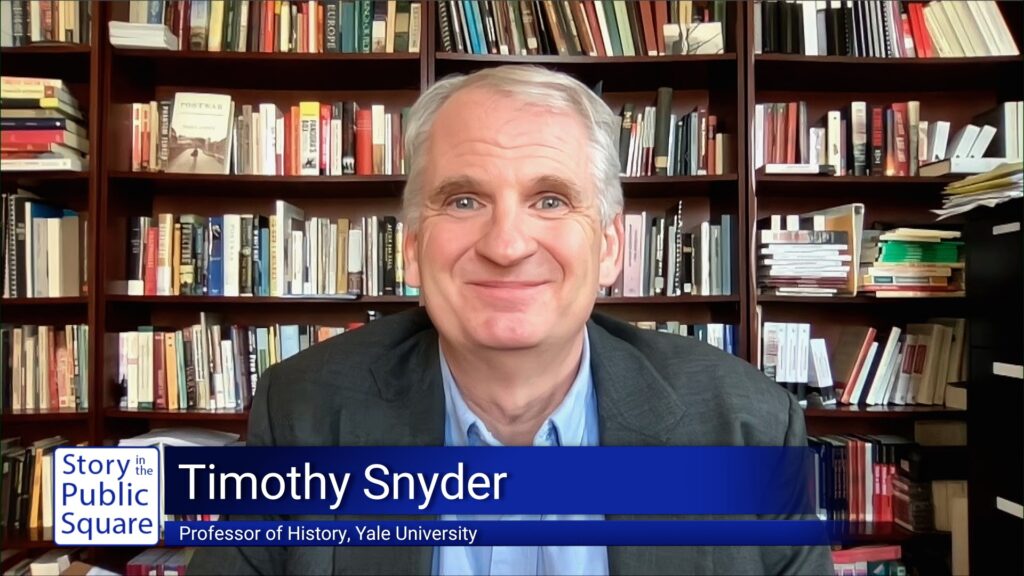The Contemporary Implications of Europe’s History with Timothy Snyder
Air Dates: April 15-21, 2024
Rebroadcast Dates: December 23-29, 2024
The history of 20th century autocracy seemed to race into the distance with the end of the Cold War. But Dr. Timothy Snyder cautions that in the decades since 1989, the West has seen the rise of new autocratic movements—some in traditional adversaries and some much closer to home.
Snyder is the Richard C. Levin Professor of History at Yale University and a permanent fellow at the Institute for Human Sciences in Vienna. He has written eight books discussing issues in Central and Eastern Europe and co-edited three further texts surrounding similar topics. Snyder’s work has appeared in forty languages and has received a number of prizes, including the Emerson Prize in the Humanities, the Literature Award of the American Academy of Arts and Letters, the Václav Havel Foundation prize, the Foundation for Polish Science prize in the social sciences, the Leipzig Award for European Understanding, the Dutch Auschwitz Committee award and the Hannah Arendt Prize in Political Thought. Snyder was a Marshall Scholar at Oxford, has received the Carnegie and Guggenheim fellowships and holds state orders from Estonia, Lithuania and Poland. He is currently researching a family history of nationalism and finishing a philosophical book about freedom.
On this episode of “Story in the Public Square,” Snyder begins by discussing his ambitions as a historian, and what has always struck his interest about the field. “I was drawn to Eastern Europe,” he says. “I was drawn to history at the same time, especially late 1980s, early 1990s. And that glorious moment you have as a historian where you can find things out in archives and think carefully about how you’re going to present them, was magnified by the simple ability that I had to read an archive which other people hadn’t been reading, and to think about things openly that other people hadn’t been able to think about openly.” Snyder also discusses historical connections to modern conflicts, particularly the war in Ukraine. In his analysis, Snyder concludes that “what Putin’s imagining is a situation which is much more like the German fantasy of 1939 than the Soviet planning of 1939. He really is looking at the world as being a place where there aren’t any rules, all that matters is resource competition, where he gets to decide, who is a nation and who is not.”
“Story in the Public Square” broadcasts each week on public television stations across the United States. A full listing of the national television distribution is available at this link. In Rhode Island and southeastern New England, the show is broadcast on Rhode Island PBS on Sundays at 11:00 a.m. and is rebroadcast Thursdays at 7:30 p.m. An audio version of the program airs Saturdays at 8:30 a.m. and 7:30 p.m. ET, Sundays at 5:00 a.m. and 10:00 p.m. and Mondays at 2:30 a.m. ET on SiriusXM’s popular P.O.T.U.S. (Politics of the United States), channel 124. “Story in the Public Square” is a project of the Pell Center at Salve Regina University. The initiative aims to study, celebrate and tell stories that matter.

